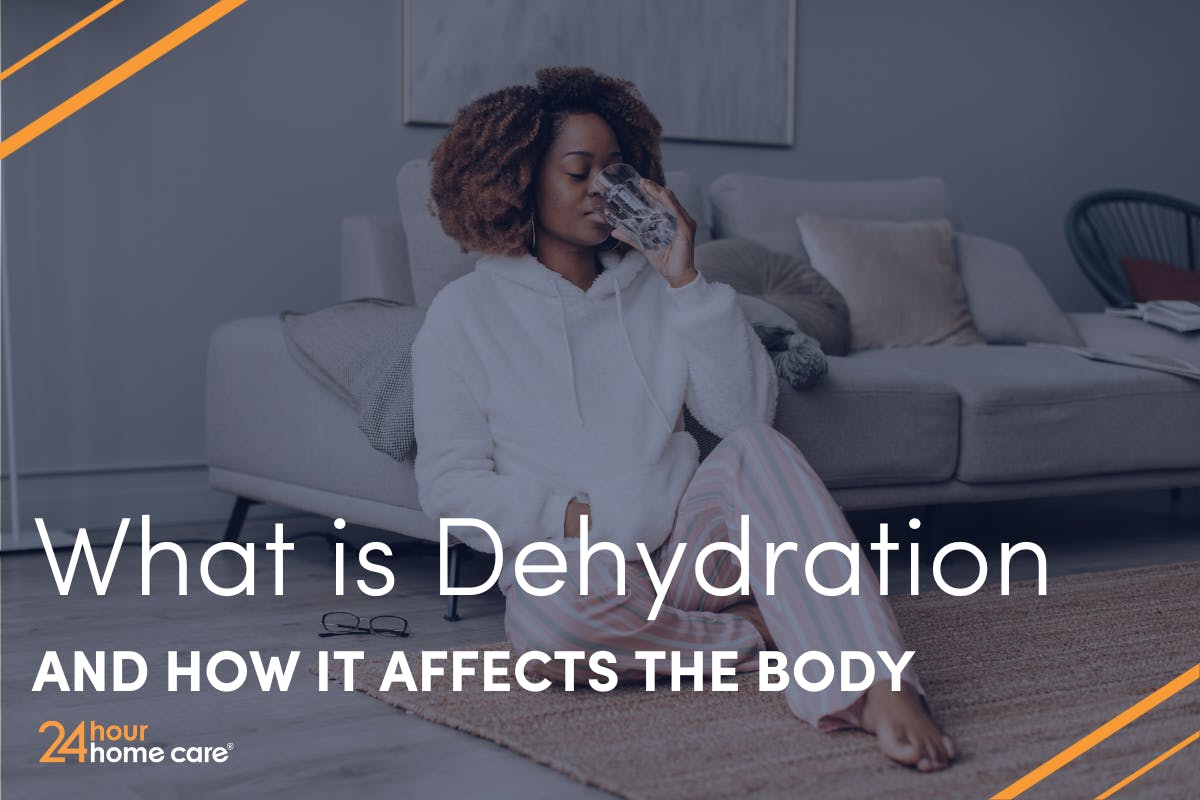What is Dehydration and How it Affects the Body
When someone feels dehydrated, it means the body is losing more water or fluid than it is taking in or the person is not drinking enough water. Fluid or water can be lost through sweat, humidity, tears, vomiting, excessive urination, or excessive mucus.

Dehydration is when a body loses more fluid than it takes in. Also, dehydration can affect anyone, even your pets at home.
When someone feels dehydrated, it means the body is losing more water or fluid than it is taking in or the person is not drinking enough water. Fluid or water can be lost through sweat, humidity, tears, vomiting, excessive urination, or excessive mucus.
Dehydration has three stages: mild, moderate, and severe. Any level of dehydration depends on the level of fluids in your system.
Stages of dehydration look like:
Mild Dehydration
Nearly 75% of Americans are chronically dehydrated. Though most people drink the recommended 8 servings of water daily, they usually have a net loss of liquids due to drinking caffeine and alcohol and eating too much sodium.
At this stage of dehydration, a person’s urine may look a bit darker than normal. People can also feel a bit fatigued, develop a headache, and cannot concentrate. At the mild stage of dehydration, a person will feel thirsty.
When someone is mildly dehydrated, they just need to drink more liquids. Additionally, they should have some electrolytes, which can be found in Gatorade, coconut water, Pedialyte, and Liquid IV.
Moderate Dehydration
At the second stage of dehydration, a person will start to notice more severe symptoms. Their urine will be much darker than usual. They may experience lightheadedness, nausea, or dizziness. In children, they may be crying but unable to produce tears.
Just drinking water is not enough when a person has moderate dehydration. In addition to water, they'll need electrolytes, which they can get through sports drinks or fruit juice with a pinch of salt.
In some cases, a bout of moderate dehydration means a trip to the hospital for IV fluids.
Severe Dehydration
When someone is at severe levels of dehydration, they must go to the hospital as soon as possible. Severe dehydration can include fainting, fever, sunken eyes, and severe pain. Anyone experiencing severe dehydration needs IV fluids.
Mild cases of dehydration can be fixed by drinking more water. When someone is experiencing a severe case of dehydration, they may need to go to the hospital.
The leading causes of dehydration include:
Diabetes
Vomiting or diarrhea
Increased urination
Fever
Excess exercise
Not drinking enough water
What are the Signs and Symptoms of Dehydration?
Dehydration symptoms can range from mild to severe and will affect everyone differently. With this in mind, it’s always good to be watchful for any symptoms.
Dehydration Symptoms in Adults and Seniors
- Lightheadedness or dizziness – especially upon standing up
- Fatigue
- Dry mouth
- Less frequent urination
- Urine is a darker yellow color
- Headaches or migraines
- Drop in blood pressure – especially after standing up from a sitting or lying down position
- Increased heart rates
- Decrease in skin elasticity
Dehydration Symptoms in Children:
No tears when crying
Dry tongue and mouth
No wet diapers for 3+ hours
Fatigue or irritability
If you or a loved one is experiencing any of these signs and symptoms, please consult a medical professional immediately.
How Is Dehydration Treated?
Treatment for dehydration in its earliest stages is easy. If someone is experiencing mild to moderate symptoms of dehydration, drink water, sports drinks, coconut water, or anything that will help hydrate. Bonus points if it has electrolytes.
If anyone is feeling ill and unable to drink fluids, they can suck on ice chips or eat a popsicle made from fruit juice, sports drinks, or water. These are both easy ways to introduce more fluids without having to drink anything.
However, as dehydration approaches the severe stage, it is best to let a medical professional handle any fluid intake. Severe dehydration can be treated with intravenous treatments to help replace fluid that’s lost from the body.
How Can You Prevent Dehydration?
Preventing dehydration can be as simple as setting a reminder to drink water regularly. Staying hydrated can help people of all ages feel more alert, happier, and healthier. An easy rule to follow is to drink a half-ounce or full ounce of water for every pound a person weighs. For example, a person who weighs 180 pounds should drink 90 ounces of water.
Using this calculation, it’s easy to figure out how much water one should drink every day. The hard part is actually drinking all the liquid. We recommend investing in a large water bottle and keeping it with you all day. Just remember to wash it often.
Hydrating your body is one of the most important ways that individuals of any age can take care of themselves. By staying hydrated, individuals can feel refreshed, awake, and vigorous.
